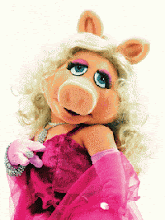Love Letter from my Awkward Teen Self
MTV's long-lost cult cartoon Daria finally came out on DVD this week. Revisiting the series eight years after its demise reminds me that I have Daria to thank for surviving my teens and emerging with smarts and sass intact.
Daria debuted in 1997 and ended with the TV movie Is It College Yet? in 2003, by which point I was halfway through my senior year of high school. There weren't (and still aren't) too many smart female characters in pop culture that painfully geeky girls can relate to.
Enter Daria. When I first caught an episode in eighth grade, I felt like I was watching an animated version of my life. My interest in writing and classic novels wasn't catapulting me to the top of the social ladder. And I had a constant sarcastic monologue running in my head, a made-for-television narration of the events unfolding before me. Plus, with my giant glasses, bushy bangs, and fondness for oversized clothing, there was a bit of a physical resemblance between myself and the cartoon.
Nowadays, there are more geeky, ostensibly unattractive women on TV, from Liz Lemon on 30 Rock to Rachel Berry in Glee and Betty Suarez of Ugly Betty, but they're all still hoping to earn the admiration of their peers. What set Daria apart, and made her the most authentic TV nerd — despite the fact that she's a cartoon — was that she didn't look for her fellow students to accept her. She just wanted to be left alone. And though I did harbor a deep desire for popularity, aping Daria and pretending like I didn't care was an acceptable alternative.
I wish I could say that I wore my geekiness on my sleeve as proudly as Daria, but in my school wearing combat boots every day and asking a bitchy cheerleader if she could teach me to "twirl hair around my little finger and look vacant" would have led to taunting and getting shoved into a locker — the exact opposite of being left alone.
Still, Daria gave me a different outlook on high school by confirming my suspicions: Being popular wasn't as fun as it looked, and volleyball skills wouldn't have much bearing on the rest of my life. While on other shows being invited to a party thrown by the popular kids would be cause for celebration (before the inevitable humiliation, that is), when Daria's faced with the idea of attending a cool-kid party, she says, "Sure. And after that I think I'll swallow glass."
Those were the kind of moments when Daria implicitly championed the life of a geeky outcast as a legitimate choice, not something thrust upon you by the popular kids.
Daria and her best friend Jane Lane provided me with the sort of social guidance that allowed me to stay true to myself. I found my Jane in 8th grade, shortly after finding Daria. Her name was Tabitha. She was painfully thin (no eating disorders, just how she was built). Tabitha's thinness was a bane to her just as my chubbiness was for me. She wore lots of rings and had a weird name, ergo, we were meant to be. Before encountering Daria, committing social suicide probably would have mattered to me, but I'd picked up her attitude that it's easier to survive high school with one fellow-loser who shares your misanthropic views than to spend four years trying to earn the admiration of girls whose main interests include proper eyeliner application and shopping at Contempo Casuals.
I didn't strictly live by Daria's code of total alienation in high school: I rarely had the courage to tell off mean girls to their faces. Still, at a time when nothing seemed to matter as much as being pretty and popular, Daria taught me that with smarts, sarcasm, and one real friend, nerdy girls can keep their sanity in high school, even if we can't all spend four years hiding out in a bedroom with padded walls.


0 Comments:
Post a Comment
<< Home